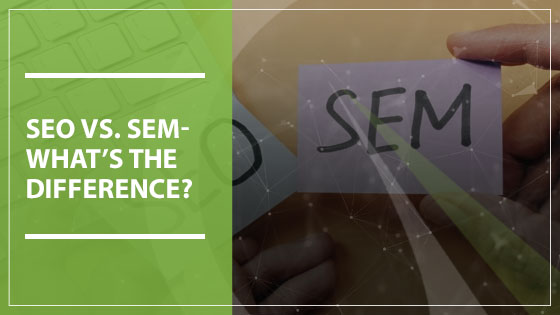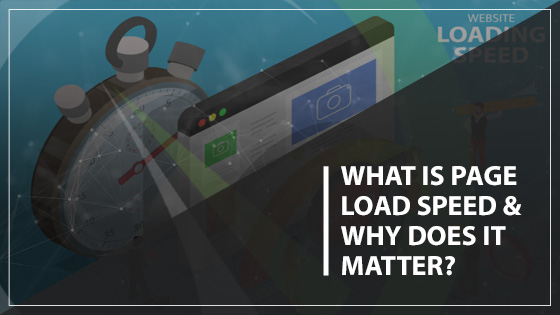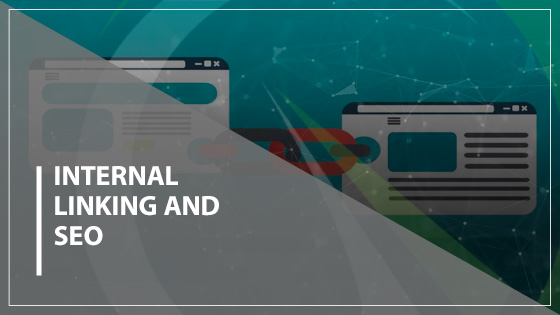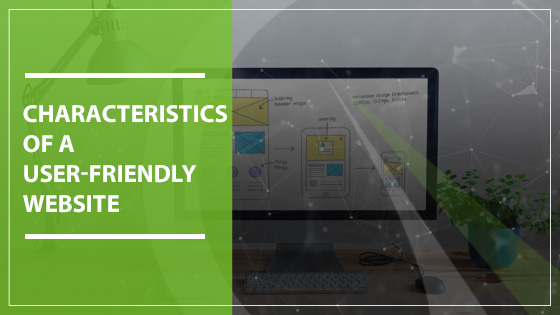The terms SEO and SEM often get confused by businesses and individuals looking to step up their content marketing strategies. While the terms are closely related, there are a few key differences between the two marketing channels you should understand before trying to leverage them to boost your business’ exposure. In this blog post, we’ll outline the differences between SEO and SEM and offer insight into which you should focus on in an effort to expand your online reach.
SEM and SEO
Before we take a deep dive into the differences between SEM and SEO, let’s start out with a brief definition of each term:
- SEO – The practice of optimizing content in order to be discovered organically on a search engine’s results pages.
- SEM – The practice of leveraging SEO as well as pay per click marketing to be discovered on a search engine’s results pages.
A Closer Look at SEO
The most notable difference between SEO and SEM is that SEO does not require any sort of monetary investment. Rather, it is all about optimizing your content organically. So, how exactly might a business go about optimizing their content without any paid advertisements? Here are a few of the most common practices across the industry that should be used in conjunction:
- Technical SEO – Technical SEO is all about optimizing the skeleton of a site to guarantee safety and ease of use for visitors. A website that is technically optimized features things like seamless navigation for mobile and desktop users, crawlability, security measures, and a responsive user experience.
- Content – A steady stream of helpful and relevant content is one of the surefire methods to boost a site’s SEO ranking. Regardless of your business’ industry, there is a 100% chance you could benefit from implementing a content marketing plan and sticking to it.
- On-Page SEO – Taking the time to ensure your site is properly labeled with the correct heading levels, image alt tags, and meta tags is a best practice you should be doing to make your site easier to navigate for visitors. Simultaneously, doing so will also make it much easier for search engines to make sense of your content and assign your SEO ranking accordingly.
- Off-Page SEO – Off-page SEO is all about building a sense of trustworthiness and authority by connecting a site to other reputable websites across the internet. When a search engine concludes that a site is trustworthy, any built-in links to other sites will also benefit from an improved SEO ranking.

A Closer Look at SEM
Rather than gaining exposure through organic methods, SEM allows businesses to expand their reach with paid advertisements through Google Ads or Bing Ads. Shopping ads, display ads, Gmail ads, YouTube ads, and text ads in search results are all examples of SEM methods that you likely come across on a daily basis. These ads are all targeted, meaning specific keywords were selected prior to the launch of the campaign. After users search for these targeted words, they enter the targeted demographic and will see customized ads relating to the keyword.
SEO vs SEM. Which is Best?
There are obvious advantages to both SEO and SEM, meaning they both are part of what makes an effective digital marketing strategy. When deciding which channel should be your next focus, there are a few key things you should ask yourself:
- What are my goals? If you are working on a time crunch and want to drive attention to a new promotion or sale, SEM is absolutely the best avenue. SEO is generally more about implementing the four strategies outlined above and witnessing steady growth over time.
- How is my current performance? Is your site already getting decent exposure without SEM? This is a sign that it could be time to take your digital marketing to the next level with targeted search engine ads.
- How are my margins? Marketing should naturally be a profitable venture, so margins are something you will want to keep a close eye on once you enter the world of SEM. If your cost per click is high and margins are low, it could be worth turning to SEO to save money and still witness audience growth.
- What is the lifetime value of a customer? Consider the total worth of a customer over the whole period of their relationship with your business. If the value is high, a larger emphasis on paid advertising is a justifiable route forward. Conversely, a low lifetime value can be taken as a signal that an increased focus on boosting your SEO score could be the most logical decision.
SEO and SEM: Better Together
The list above assumes you plan to implement either SEO or SEM, but they are both most effective when used in tandem. By combining your SEO and SEM efforts, you can begin to tap into the following benefits:
- Shape your SEO strategy based on the successes of your SEM effort
- Retarget failed SEM campaigns with search engine optimization efforts
- Occupy more space on search engines with each channel fully optimized
We Are Here to Help Grow Your Business Online Through SEO and SEM
Working with a professional digital marketing company is the best way to make the most of your website and all that Facebook Pixel, LinkedIn ads, Google Analytics and other digital advertising platforms have to offer. To learn more about the best digital marketing strategies for your company and reach a bigger audience than ever before, work with Gauge Digital Media. For a quote or to schedule a call, contact us at (443) 376-7709.






